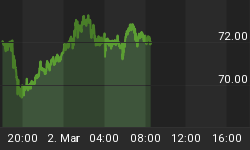India's population will overtake China's in 2024, reaching some 1.45 billion people--and it will be the most populous country the rest of the century, growing to 1.7 billion in the late 2050s. It’s also home to three of the world's top 10 megacities - one more than China. So this next parallel is only logical: Indians are getting richer faster than residents of any other major economy. Dada from several different sources confirms this trend.
Research from the New World Wealth firm estimates that total private wealth held by Indians by 2028 will be around $23 trillion. The authors of the report note that “private wealth in Indian has been rising spectacularly”, growing 98 percent between 2008 and 2018, and set to grow at an even faster clip over the next 10 years.

(Click to enlarge)
According to an Oxfam report, India added 18 new billionaires last year, raising the total number of billionaires to 119, while their wealth topped $400 billion for the first time.
These and some other data sets show us exactly how India will be one of the leading countries in the world and could contribute to the next wave of global economic growth--assuming that economic growth continues at this pace.
"Having missed the first three industrial revolutions, India is now in a position to lead the fourth on the back of its vast tech-savvy young population and is on the way to becoming one of the three richest countries in the world," billionaire Mukesh Ambani told Business Standard. He is a Chairman of Reliance Industries and his current net worth is $54.3 Billion. According to Forbes and other sources, Ambani is the richest person in India.
Of course, the doors to Indian economic growth have been flung wide open.
India is, after all, home to the third largest number of tech start-ups in the world.
According to an IMF report, "Projected GDP Ranking 2019-2023", India was ranked 7th in 2018 and is projected to surpass United Kingdom and France in 2019 to become the fifth largest economy in the world.
Related: Central Banks Are Stockpiling Gold
Along with that comes vast polarization between the country’s super rich and super poor. While the billionaire population may be soaring, there is a large chunk of India living on the edge of starvation.
"Public services are suffering from chronic underfunding or being outsourced to private companies that exclude the poorest people," Oxfam notes, adding that “Children of poor families in India are three times more likely to die before their first birthday than children from rich families.”
The rights group said in many countries including India, a decent education or quality healthcare has become a luxury that only the rich can afford. So, it will be up to this bursting billionaire class to figure out how to find the right balance between wealth and starvation.
In an interview last year about how India’s billionaires became billionaires, author and former Financial Times Mumbai bureau chief James Crabtree told US News, poignantly: “You have two things going on in India and there are some people that call this the division between the good and the bad billionaires. The good billionaires are those that run competitive businesses that become successful on a global scale and the Indian billionaires who made their money through software and IT are an example of that. They set up businesses that became successful in America or Europe and so they became themselves very rich because of that. And then there's another group who are more likely to have become very wealthy because they have been able to manipulate the political system in some way. So they tend to be good business people, but they improved that performance by working (the political system). A lot of the wealth that has been created in India over the last two decades has been the result of collusion between the business elite and the political elite.”
With that in mind, It will also be a question for the next government, with election results coming out today and Prime Minister Narendra Modi’s Bharatiya Janata Party and its partners expected to win.
By Damir Kaletovic for SafeHaven.com
More Top Reads From Safehaven.com:

















